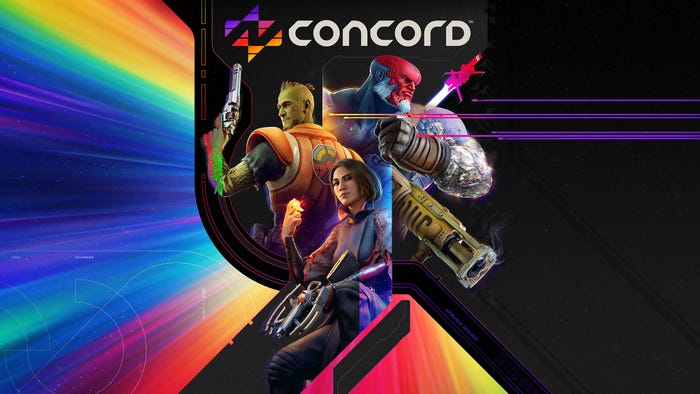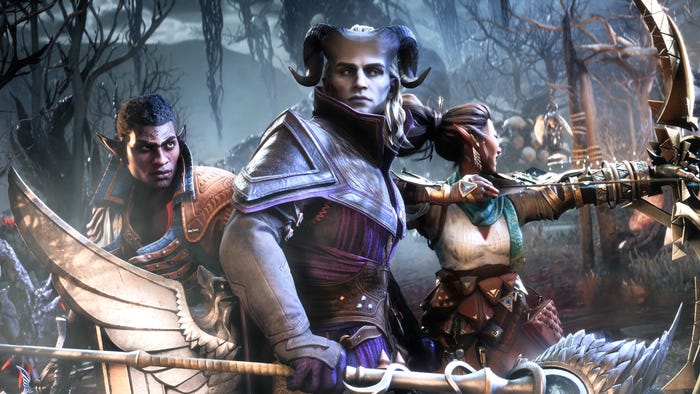Don't fire your workers after each project!
A study on why and how companies can avoid firing a large part of their workforce in between two projects

This article was inspired by the recent attention that has been drawn about a common behaviour in the video games industry: laying off staff once a project is done, then hiring other people later to work on new projects.
On first sight, that might seem like a pretty logical idea. The number of employees needed during each part of the development process changes a lot, so you should need to hire and fire to avoid running of skills AND wasting money on idle employees. Here's a small graph I made, summing the evolution of the need of workers as a project advances. For those of you with working experience in the industry, it's nothing new, but it might still be necessary:
Graph
Note: by game designers I mean the people who are in charge of designing the game itself, such as writers, level designers, gameplay designers etc. By other artists, I mean the people creating the assets that are to be used in the game, such as 2D / 3D artists, animators, sound designers etc.
You start the project with a first draft. This is when you get the general idea of what the game will be, and you also start throwing ideas around and writing the Game Design Document. At this time you only need a handful of workers: some game designers mostly, but also a few other artists to illustrate the game design document, programmers to consider the technical feasability of the ideas and producers to consider the financial feasability of the project.
Then you work towards the prototype, the first playable version of the game that will be used to convey the ideas of what you want to do. To reach this milestone, you will need a few more programmers (or many more if you work on an internally built engine, but that's a specific case), a few more artists, and maybe one or two QA testers, just in case. You don't need more game designers, as you are essentially working on the ideas of the first few game designers.
Next milestone is the Alpha Build, a playable demo that should mostly reflect what the final game will be. You mostly need to hire programmers here, as you are litterally building the game's skeleton. You should also get some more producers, as the team is growing.
Then you walk towards what is often seen as the most iconic step of the production of a game: the beta build. By then, a good chunk of the game is done. To reach this milestone, you need to get a bit of everything: game designers to make the quests, dialogs and levels, artists to build the needed assets, programmers to include their work in the game, and of course QA testers.
After that, you're moving towards making the game Gold, or, in other words, finished. You might need some more game designers to add in some more content, a few more programmers to polish the game, but also a lot of QA testers.
And then, the game is released. If you plan on releasing some DLC, you might keep a few people working on the project, but th size of the team will shrink, no matter what.
So, now, the question that one might ask himself is: what should I do with the people that are not needed anymore to work in the game? You're a company, you need to make money, so you won't pay idle, uneeded people, right? So, let's fire them.
Congratulations, you're now an average video games industry executive! But that's not what you want, right? Right...?
Ok then, I'll start by explaining why this is a bad idea. Of course, the first thing anyone would think of is: well, it's morally wrong to hire and fire people. BUT you're an executive now, you have a company to run, and you have already sold your soul, your parents and your firstborn to the devil, so morale doesn't mean a lot to you. So I'll have to prove why it is not economically viable to hire and fire:
Let's face it, hiring is very expensive.
Every time you hire someone, you must first pay a HR manager to post the job offer, browe through the 25 brazillion applications, select a few ones and finally hire someone. By then, 3 - 4 months have passed. But once you hired somebody, this person will not be productive right away. An engineer will need to get familiar with the work of the other engineers, a manager will need to get familiar with the corporate culture and the people he'll work with etc.
A newly hired worker won't be productive at all during the first month, and will certainly only be efficient after at least 6 months in your company. Hiring someone is very expensive AND pretty dangerous, as the newly hired worker might not fit the job, or might leave the company after a couple of weeks, requiring you to re-start the whole hiring process from scratch.
So, what's the solution to this problem? Hire experienced people only! Have you noticed how every job offer in the industry (and I really mean EVERY SINGLE ONE OF THEM) asks for someone with 3 - 5 years of experience? It's not a question of skills: someone with 3 - 5 years experience, no matter his domain (management, coding, animation etc), will not be remarkably better than someone freshly out of school with a degree in this field. Actually, experience is asked for two reasons:
Someone with experience will already have worked in a company, and will know how corporate world works. He will be productive much faster than someone with no experience so as to say.
If someone has stayed in a company for several months, then you can know that he is someone who will actually do his job, instead of just skipping work. This is a way to get some minimal guarantee about the efficiency and reliability of a worker.
The big drawback is that this leaves little to no room for junior people, so little to no room for fresh blood, new ideas in the industry. People who get hired without experience are often people who already have connexions in the industry, which means that they don't really count as "fresh blood": they're already familiar with the current trends of the industry, and will only repeat what they saw.
This situation is also made way funnier when you see some companies looking for "very talented people with 3 - 5 years experience". Let me tell you one thing: if you ever get your hand on someone that you can seriously call "very talented", under no condition will you let him leave your company after 3 - 5 years. You will do everything you can to have him stay around. Of course, I don't deny the fact that there might be some highly talented people with some experience and without a job, I'm only saying that tere shouldn't be any in an industry with efficient HR management.
Firing breaks down teams
People work better with each other when they know each other well. They are more likely to express any new idea idea they get, report any problem they encounter, and more generally be more motivated to go to work every day and give their best (especially when they know that they can have the chance to make a career in this company instead of being fired after 2 years). On the other hand, every time you build a new team from scratch, they will take a lot of time to learn how to properly communicate and work together: whenever they get a problem, they might choose not to report it simply because they have no idea about who they should report to!
This is especially important in the video games industry, as the quality of a game relies 100% on the people working. No raw materials, no plants, and most technology is widely available.
Also, remember when I told you about the 6 months period during which a newly hired worker is not really productive as he still has to get familiar with your company? Well, having a team in which people are familiar with each other will make that period shrink: everyone in the team will be available to give him some right directions. Whenever he has an issue with his work, he'll only have to ask his closest co-worker, who will instantly guide him towards the right person. And since he's being sent by someone from the team, he will usually feel more comfortable with expressing said issue, since he knows his interlocutor is here to listen to him.
Firing helps the competition, gives you a bad image and makes your feet smell
Every company has its secrets. New IPs it's working on, new technologies it's devlopping etc. You may enforce some strong confidentiality policies, but when you fire people by the dozens, there are risks that you get your data shared with the competitors, and it will be very hard to know which one of your former employees did it.
Something that might also happen is, when you fire whole teams at the same time, is that your former employees decide to regroup and create a new company from scratch. Congratulations, you just created a whole new competitor from scratch, when you could have kept them and have them make games for you!
Last point: the whole industry revolves around a small, core audience that has a huge influence on the wider, more casual market. Its often that audience which will make your game successful by advertizing it to their friends. The problem is that this core audience loves to keep itself informed about everything, including the way each company works. If you have a reputation of firing a lot of people at the end of every project, you can easily understand that they will dislike you, and are less likely to buy and promote your games.
So, ok, I won't fire people anymore. But what shall I do with them now?
This is a good question. And there are many answers. Obviously, you won't leave them idle and pay them to do nothing. So, here's what you can do with them:
Training
Training, training, training. No one ever thinks enough about it. Send your employees in training, and when they'll come back, this will improve their productivity will continuously improve from project to project. Many companies don't focus enough on training because well, when a company is training, he's not working. In the video games industry, we have the luck of having periods where they're not working, so we can sennd them to train. This will also improve their loyalty to the company, making them less likely to leave your company in search of better prospects.
Training can also allow you to provide your employees with a very wide range of skills. If everyone knows about the work of everyone else, many good things will happen to your company:
Communication will be made easier. When designers ask coders to implement a new feature, they will be more likely to have come up with a feature that can be implemented, and to describe it with words that will make the implementation easier. This way, you can easily gain a few days of work.
Career renewal. People get tired of doing the same job every day for years, and that's usually when they decide to leave their company to look for new prospects. If they have different sets of skills, you can easily dispatch them to new areas, departments, jobs etc. They will feel the change in their daily routine, regain some motivation and feel like they're going somewhere with their careers.
No one is essential. If people are too specialized, then the absence of one salary can block the whole project. On the other hands, if you have people with some basic skills regardind the job of the worker that is away, they can make do and keep the project rolling while waiting for him to come back.
Everyone can help at everything. Look back at my graph. The evolution of different jobs is not the same depending on the step of the development you currently are in. If your workers know about different jobs, instead of, say, firing designers and hiring coders, you can have your designers work on coding for some time, while waiting for the dedicated coders who are still busy with another project.
Enrichment helps creativity. No one comes up with ideas out of thin air. Every single creative person will tell you that real genius comes from getting ideas from unsuspected sources. And the success of every game comes from the ideas. If someone knows about different fields, they are more likely to be open minded, and get ideas from new, unexpected places.
Polishing the game
Instead of releasing a half finished game and having a small team in charge of patching it for a few months, why not dedicate all the people you were going to fire to polishing the game before release, while sending some other people work on a new project. By the time polishing will be done (I mean really done), the other team will already need to start the alpha build, which normally is when you start hiring.
Work on another project
If your company is big enough, chances are high that you have several games being made, and none of them being at the same level of completion. With a good enough schedule (that's what HR are for), you can keep a stable workforce by moving your workers around. This of course needs to have some long term planning, which is not what most executives are known for.
Be creative!
I guess you already have seen this video:
http://www.youtube.com/watch?v=DGIgXeGC6Dg
That's the Skyrim game jam. In the last week of development, they left the developers fool around with the game, and add anything they wanted. What hurts me in this video is how this single week almost has more creativity than the rest of the game.
Remember, the video games industry is a creative industry. 9 out of 10 workers are here because they love games, and want to create games that they will love. Everyone has ideas about games they want to be done. Why don't you let them try these ideas? While a small part of your workers are working on your next official project, let the other ones work on smaller projects, develop new ideas, create new prototypes.
Workers will feel more respected as they have a chance to express their ideas. Let's be honest, most of them will suck, but you will still find a lot of them to be very good. And you can do many things with said ideas:
Company endorsed indie games. What if your company sold some of these indie games and reversed a part of the profits as royalties to the workers who developped them? Of course, for this idea to work, you need to ensure the independence of your employees when working on this project, otherwise it will quickly be noticed as just a marketing technique. Risk level is low, and it can also give you some of the big directions in which to lead your company. Just think about what one indie man can do on his free time with nothing but his personnal computer... Then now think about what he could do with much more time, much more means and the help of some game industry professionals.
New game ideas. If an idea seems to have enough potential, it can be your next big hit. You don't want to miss it.
Ideas to be implemented in your future games. Not everyone has an idea for a game. Sometimes, someone can just get an idea about a fun new feature that would fit an existing IP. If you leave them the time to prototype it, then you may have the chance of getting something that will really refresh your IPs.
Just remember to trust the creativity of your developers. Not everyone is a genius, and not every idea from a genius is good (Wii music... ahem), but you might have laid off a goldmine for your company not three weeks ago.
So, I hope you liked this article. See you soon for another one!
About the Author
You May Also Like








.png?width=700&auto=webp&quality=80&disable=upscale)
.png?width=700&auto=webp&quality=80&disable=upscale)